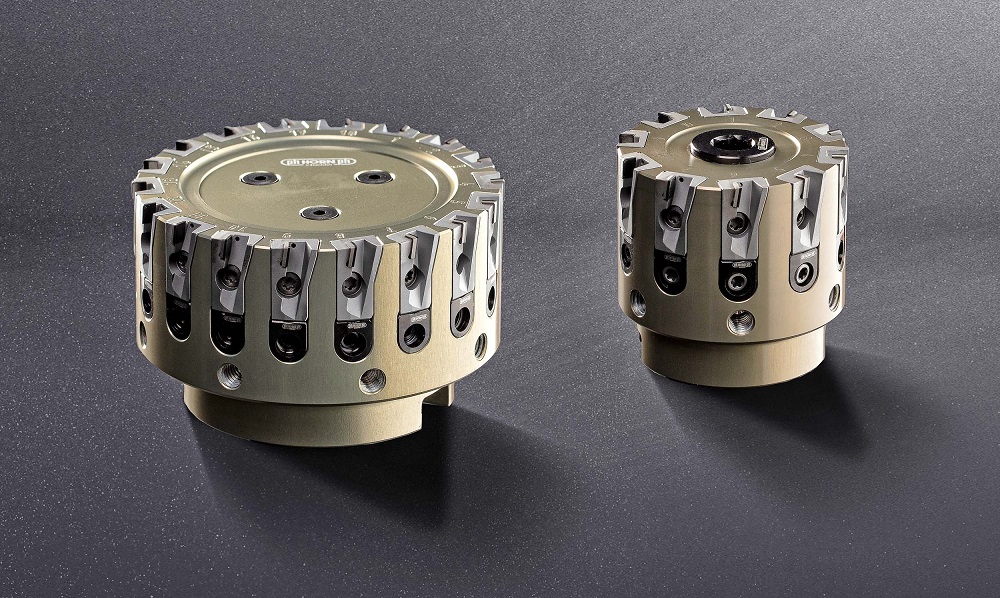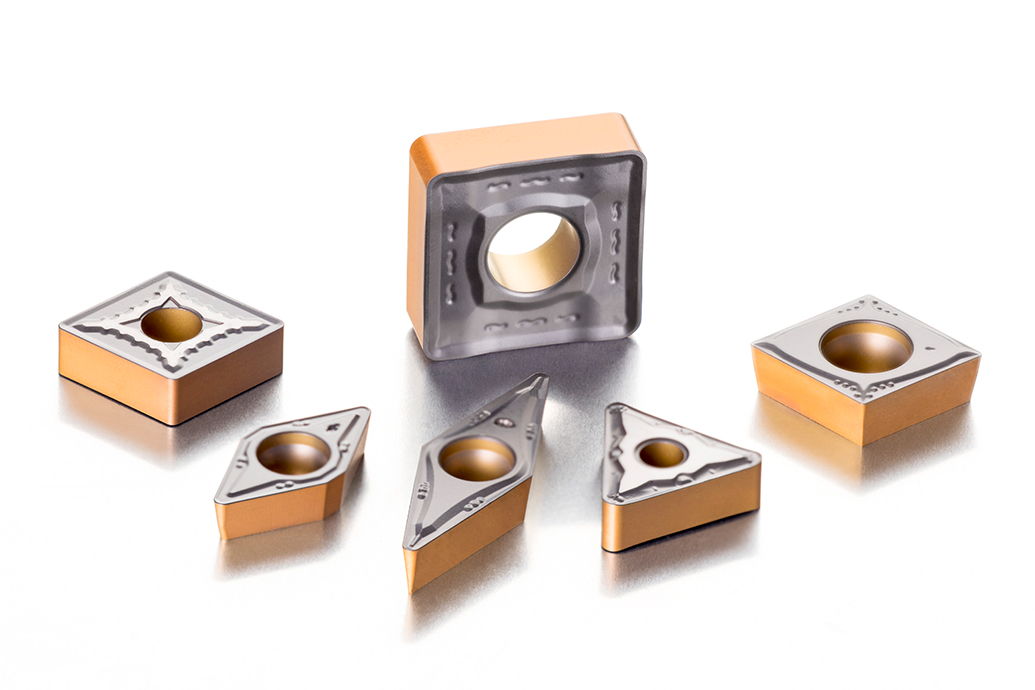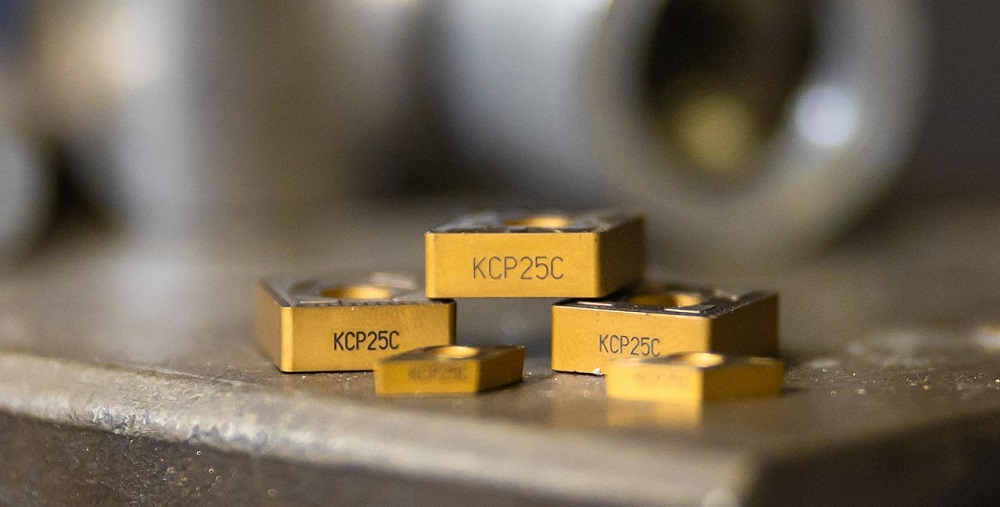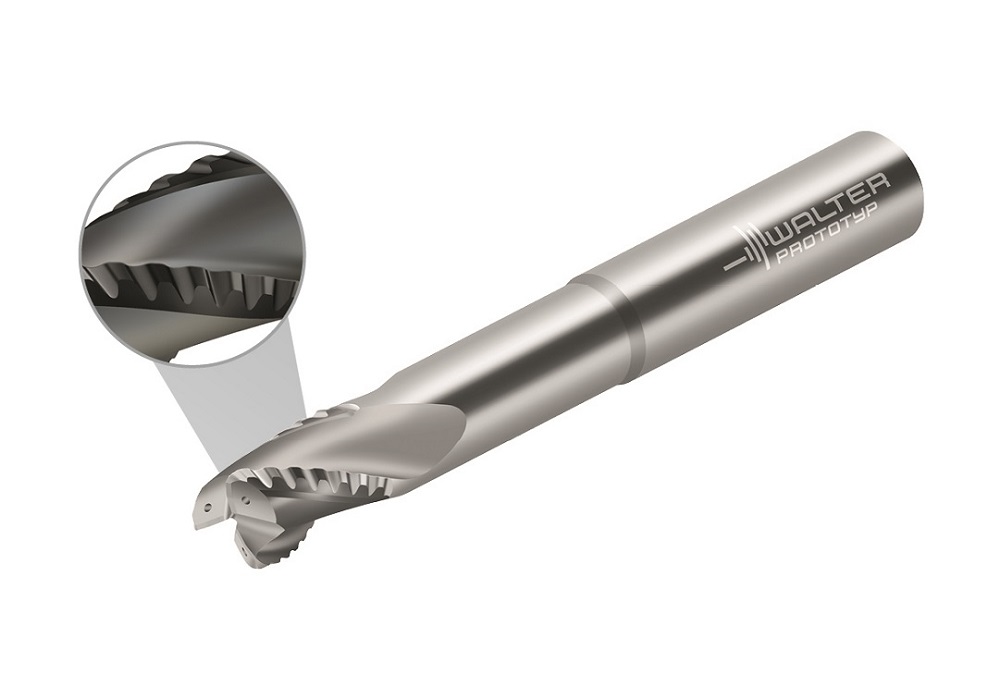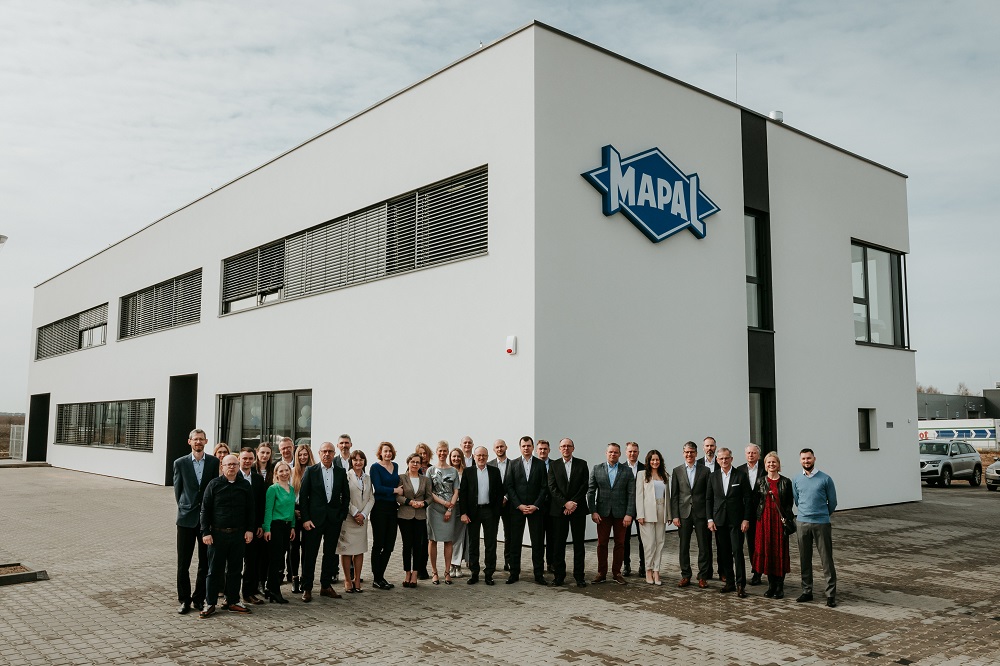A new, high-feed milling system forfinishing non-ferrous metals and plastics is now available from Horn Cutting Tools. Designated DTM 1710, the tool system employs inserts with PCD cutting edges brazed onto cassettes that allow fine axial tuning to micron precision via adjusting screws on the tool carrier. The PCD substrate is laser-cut to achieve high surface quality during the finishing process. Axial run-out is set by Horn engineers before tool delivery.
Compared with other tools of this type on the market, Horn says its milling system offers a higher number of cutting edges for any given size. The tools are available in the diameters 50 mm (z = 10), 63 mm (z = 14), 80 mm (z = 18), 100 mm (z = 24) and 125 mm (z = 30), with z representing the number of inserts. All variants have internal coolant supply.
To achieve a high-quality machined finish on the workpiece and enable use at high speeds, the tool must be in balance with the tool holder, for which purpose balancing holes are available around the cutter body. Furthermore,the combination of machine design, guideways, spindle and work-holding system, as well as the milling tool, have a decisive influence on the result.
The aluminium alloy milling body is lightweight, minimising centrifugal force and hence prolonging spindle life. For long-term protection against abrasion from chips, the cutter body is surface treated.The Horn high-performance PCD cutting material comprises a mixture of different diamond grain sizes. As the proportion of diamond by volume increases, so does the effective hardness, toughness and cutting edge quality. For the DTM 1710 milling system, Horn offers two different PCD substrates to suit the workpiece material.
For further information www.phorn.co.uk






